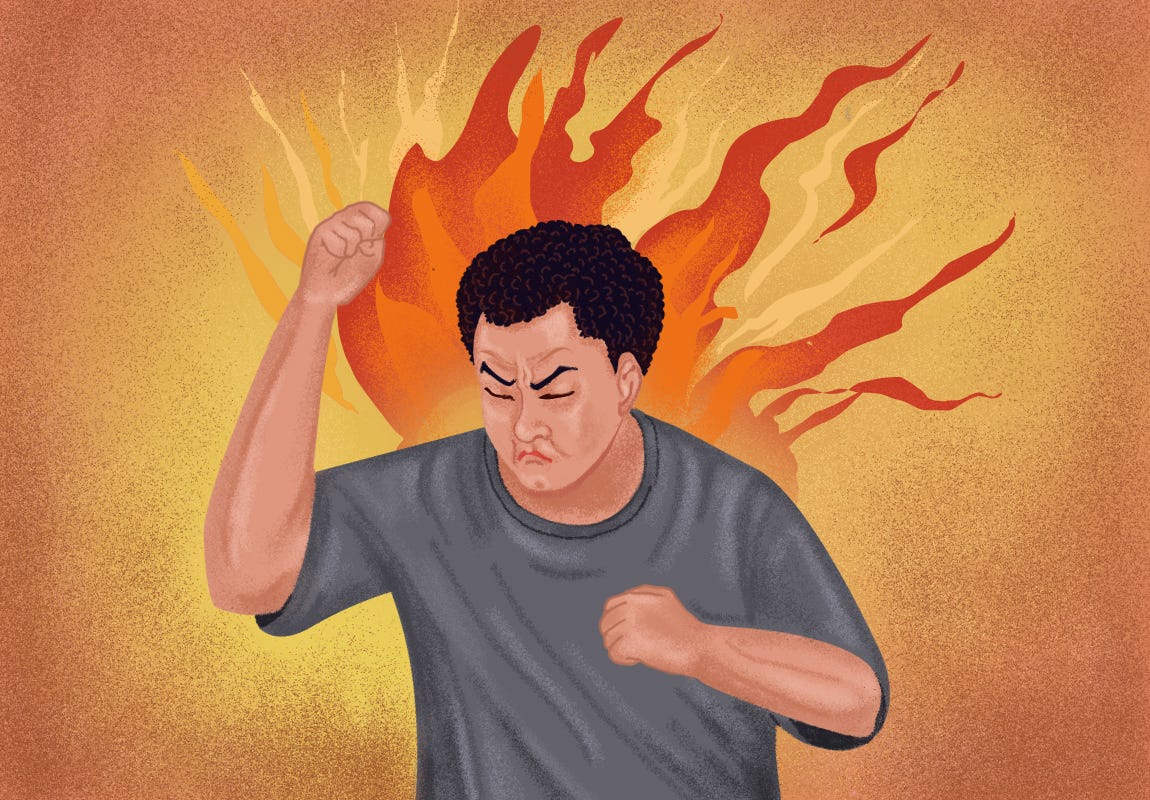Previously we explored some long-term coping strategies to combat anger. In this post, we will look at seeking professional treatment and support, especially when our best strategies fail to deliver the results we are looking for.
Sometimes our most earnest efforts can fail, and when they do, they can further worsen our situation. When we reach such points in life, it is important to be honest with ourselves, understand the seriousness of the situation, and seek professional help and support. Having said that, anger can become a hurdle, even in seeking help.
Accessing professional help can sometimes take time. Therapists, counsellors, and doctors tend to be very busy professionals and, sometimes, you may experience long waiting times to reach them. All of this can add to your frustration and anger, especially when you start feeling that you are being denied the care you want and deserve.
However, it is important to remember that if you express your anger aggressively towards your healthcare professionals, this can cause even more problems and delays in getting the help you want. It is good to remember that healthcare professionals have a right to feel safe at work, and if your behaviour becomes aggressive or threatening, they may not feel able to help you.
There are various treatments available that can help you with your anger problems. Some of them include talking therapy and counselling, anger management programmes, and specific and targeted help for abusive and violent behaviour.
If you feel that your difficulties with anger are related to a mental health problem and/or traumatic experiences, then you might find that treatment and support for these issues might also address your anger-related problems. Let us look at some of these in more detail.
Talking therapy and counselling
Talking therapy and counselling involves talking about your problems with a trained professional (such as a counsellor or psychotherapist) who can help you explore the causes of your anger and ways to manage it. This can help you work through your feelings and improve your responses to situations that make you angry.
Talking therapies aim to:
give you a safe time and place to talk to someone who won't judge you;
help you make sense of things and understand yourself better;
help you resolve complicated feelings, or find ways to live with them;
help you recognise unhelpful patterns in the way you think or act; and
find ways to change them (if you want to).
There are different types of talking therapies, and some are specifically tailored to combat anger issues.
Counselling is usually a short-term treatment where you might talk through a specific issue – such as outbursts of anger with your partner or in the workplace – and try to understand how you could manage those situations differently. Some workplaces, higher education institutions, local charities and clinics offer free or low-cost counselling services to their employees, students or local residents.
Psychotherapy often lasts longer than counselling and tends to go deeper into past experiences. Your focus here may be on learning more about yourself to help you understand why you express your anger the way you do, or why certain situations make you angry.
Cognitive behavioural therapy (CBT) is a highly structured short-term talking therapy that examines how your thoughts, feelings and behaviours affect each other, and aims to teach you practical skills to change this. You could also try to learn CBT techniques by yourself by accessing self-help books from your local library, or online through free apps.
Anger management programmes
These are specific kinds of talking treatment for people who struggle with anger issues. They often involve working in a group but can also involve one-to-one sessions. They may use a mixture of counselling and CBT techniques. You can first speak with a psychologist, therapist or doctor near you and ask them if there are any courses or programmes that you can enrol in.
Help for abusive and violent behaviour
If you find yourself acting out your anger in abusive and violent ways, it is important to seek help immediately. Seeking help is the most important first step towards changing your behaviour, and so you must not back away from doing so. Once again, speak with a psychologist, therapist, counsellor, or doctor near you, and explain your situation. Ask them to refer you to any local services that operate in your area, running programmes to help perpetrators of domestic abuse change their behaviour.
Now put on your thinking hats and think about the following questions for a couple of minutes.
Can you think of some factors that may contribute to anger outbursts?
Can you think of anger management programmes in helping a person who is suffering from anger outbursts?
Write down your thoughts and discuss them with your students, children, and your colleagues. Listen to their views and compare them with your own. As you listen to others, note how similar or different your views are to others’.
In the next post, we will look at some treatment and support options that you can explore when you feel you need them.
Thank you for listening. Subscribe to The Scando Review on thescandoreview.com.
Happy Teaching!













Anger series